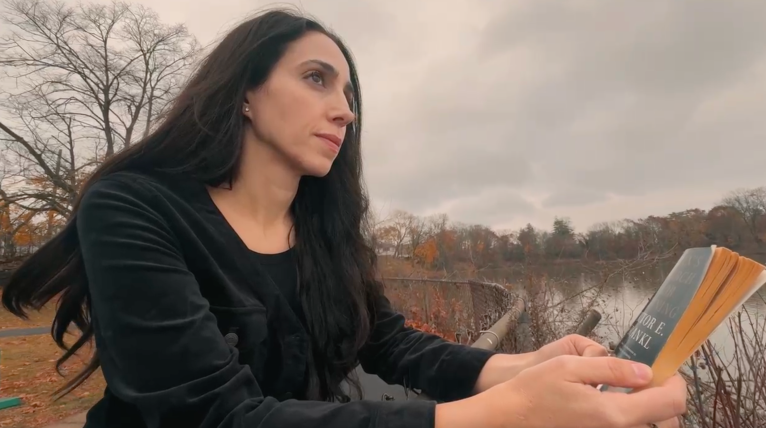
14 Little Ways To Let Your Guard Down
Accept the fact that sometimes you won’t understand why you’re feeling a certain way, and that’s okay.

1. Tell a story/memory of your past that makes you happy.
Sometimes the easiest (and most unconscious) way to let your guard down is to start by sharing something that makes you feel good. When your spirit is light and you’re not overwhelmed by the sheer magnitude of unveiling your heart, you’re able to speak with less hesitation.
2. Talk about your values, or what you feel strongly about.
Your values/dreams/wishes are at the core of you. Sharing these might not cause you to feel vulnerable because such confident emotions are attached, or because they’re simply second nature. Rather than thinking you have to share every single piece of you, start with your passions and the rest will feel natural.
3. Reveal one small thing you’re afraid of.
It might be scary to share a fear with your partner or someone you trust, but it’s just one thing – it won’t kill you. And if you’re able to start there, you’ll feel more confident as you continue to build trust.
4. Play a (vulnerable) game that takes the pressure off.
Here’s an idea: Grab two sheets of paper – one for each person. Together come up with a set of questions to answer, first about yourself (without looking!) and then, on the other side, about your partner. When you’re both finished, share the answers with one another in a relaxed, less interrogating environment.
5. Let your partner/person share something and simply listen.
Sometimes the best way to let your guard down is to allow your partner to let theirs down alongside you. Let them speak and simply listen. If you’re feeling ready, reciprocate. If not, tell them this, but be honest with yourself about trying your best in the future.
6. Realize that each person and relationship is vastly different.
As hard as it is to let go of what was, remind yourself that every person and every connection is very different. Just because a person of your past has hurt you doesn’t mean that will happen again. And just because a relationship failed doesn’t mean your next one will. Give your new person a fair chance without holding them to unrealistic expectations.
7. Slow down and connect your mind and body.
Ask yourself how you’re feeling, identify the ‘why’ behind certain emotions, and try to talk to yourself down from anxiety. Ground your mind. Use calming thoughts to calm yourself physically; or vice versa, intentionally relax tense muscles to encourage your mind to follow.
8. Breathe.
Letting someone in is very challenging. Don’t be too hard on yourself.
9. Accept the fact that sometimes you won’t understand why you’re feeling a certain way, and that’s okay.
You’re going to be nervous. You’re going to be cautious. You’re going to have feelings that make total sense based upon past hurt…and you’re going to experience emotions you can’t quite explain. Whatever happens in the process of letting your guard down – accept it and know that bottom line, you are okay.
10. Validate your own feelings.
First, understand that healing is not a quick process. You’re not going to wake up one day and be perfectly okay. But the most important thing in letting your guard down is to validate yourself. Sometimes you won’t get that from people (especially in the way you want/need), and it’s a vital piece of opening your heart again.
11. Don’t try to place blame (on a person of your past, present, or most importantly, yourself.
The person of your present is not at fault for what happened in your past. And honestly, blaming the person of your past does nothing but hold you back there. Try, as much as you can, to let go. If you can’t quite yet, then make intentional steps to not blame anyone (especially yourself!), and instead focus on healing rather than restitution.
12. Try your best to communicate, even when it’s hard.
Holding back, holding everything in—that does nothing but build up angst within your soul and make your partner feel incapable of truly being there for you. While you shouldn’t apologize for the fact that your healing takes time, try your best to explain what you’re going through so that your person can meet you halfway, or at least feel less powerless.
13. Accept our emotions as they come.
Some days this process will feel natural, and then days later, you might feel like you’re back at square one. Whatever happens, understand that our hearts are malleable, and even if you’re feeling something that doesn’t quite make sense, that doesn’t mean you’re unworthy or incapable.
14. Be patient with yourself.
Bottom line, you’re trying. And that in itself is everything. ![]()











